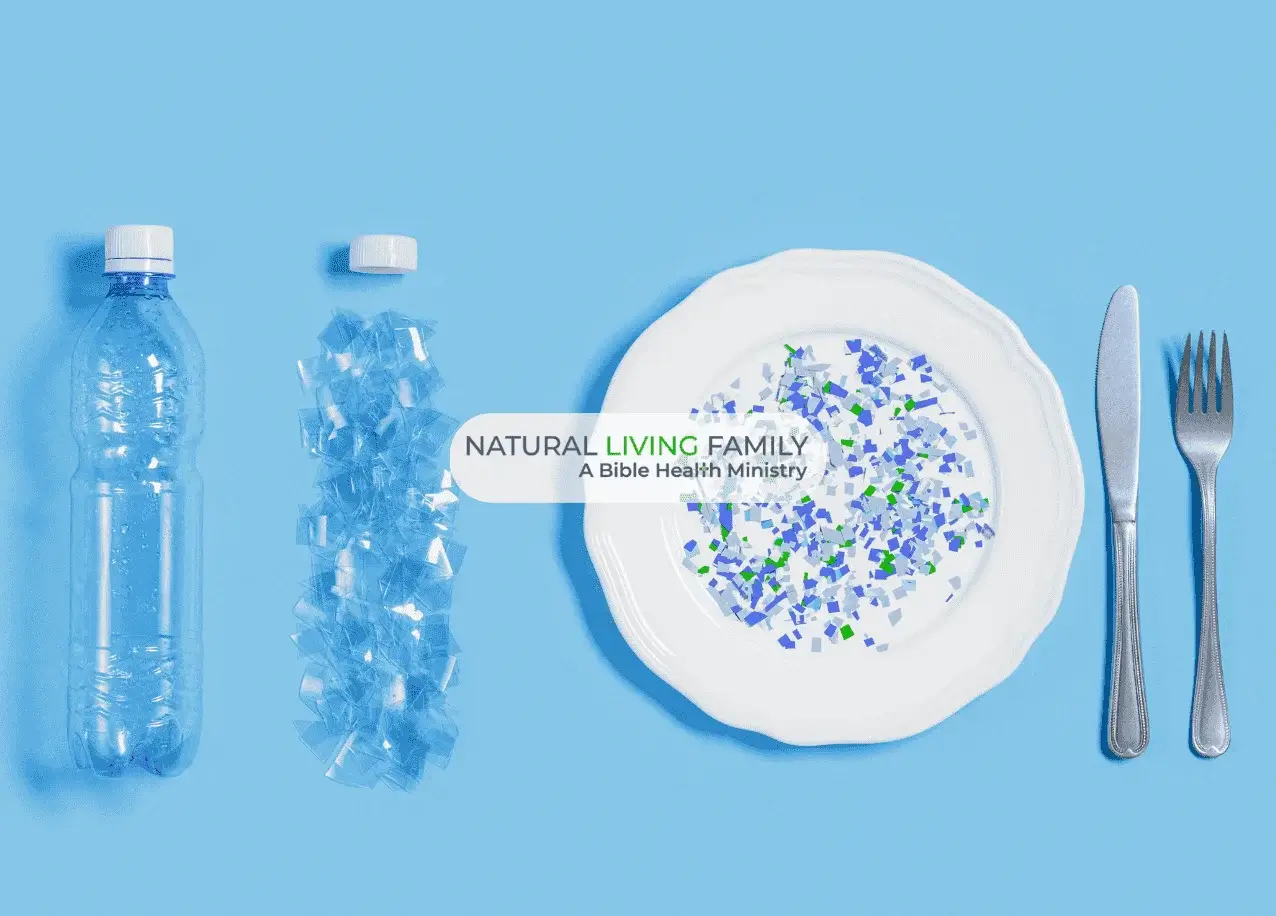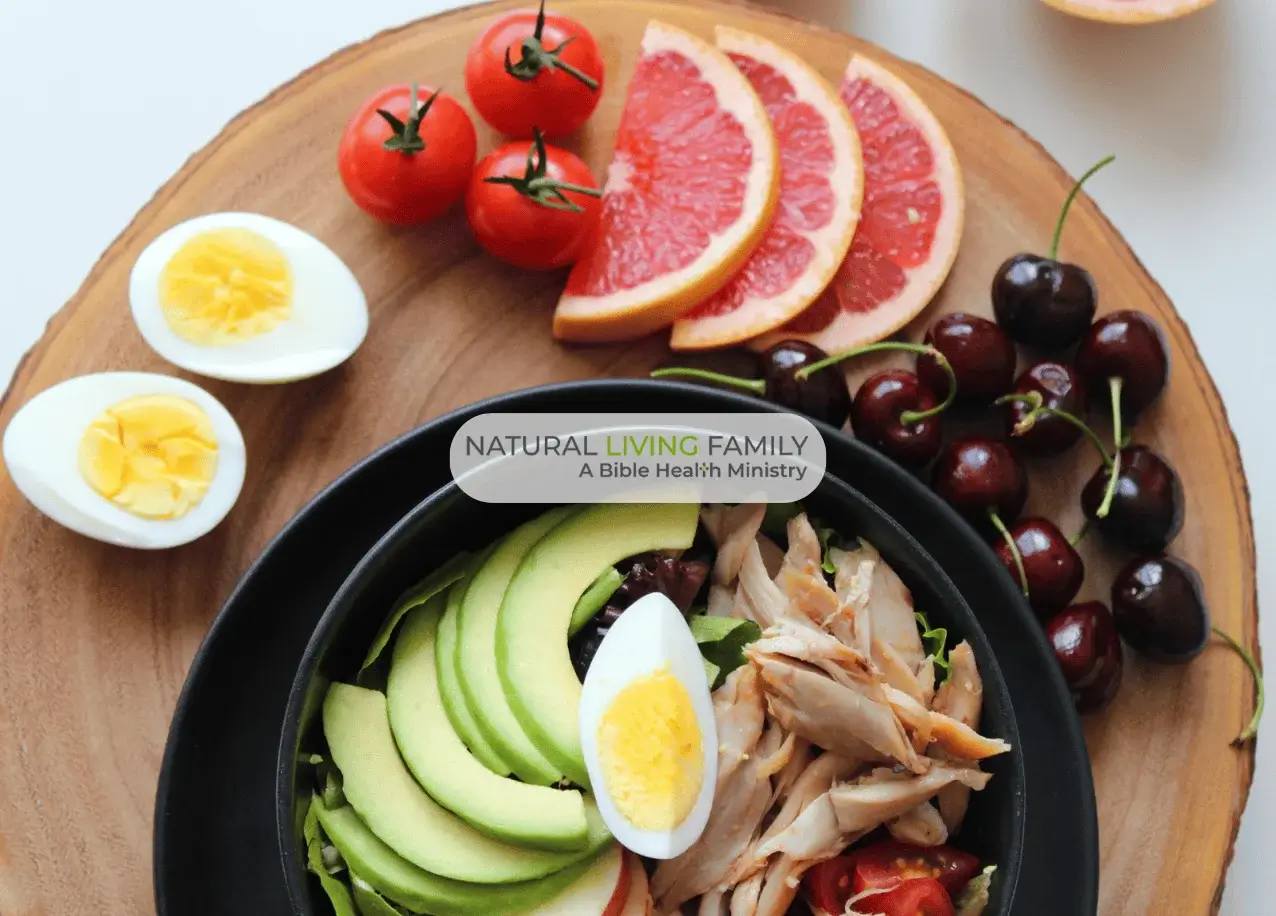Several years ago, we upgraded our diet and focused on eating more bioactive foods, and we have found them to be one of the biggest keys to unlocking abundant health for our family. But, if you’re like most people, you’ve never heard of bioactive compounds, so let’s start there…
Table of Contents
What Are Bioactive Foods?
Today, as a society, we are more unhealthy and overweight than ever. In pursuit of both weight loss and better health, many people turn to fad diets and multi-vitamin supplementation, which often fails to address either of these issues. People discover that their weight-loss is short-lived and true health gains are not apparent. What if there were a better way? I believe there is. Rather than turning to these quick fixes, adding foods rich in bioactive compounds to your diet along with adding essential oils to your routine can help ensure that you are getting the nourishment your body needs. It may even help you achieve your body’s ideal weight.
When I was conducting research for our new book, The Essential Oils Diet, the term “bioactive” repeatedly caught my attention. Assuming you’re like me and you haven’t heard of them before, bioactive compounds, are phytochemicals (plant-based chemicals) that help boost metabolism, prevent disease and make you feel great! Examples you may be familiar with include:
- Carotenoids – the tetraterpenoids that give your carrots, corn, tomatoes, and pumpkins their distinct orange, yellow, and red pigments.
- Polyphenols – a group of more than 8,000 antioxidant-rich phytochemicals such as flavonoids, lignans phenolic acid, which boost the immune system.
- Fiber – Dietary “roughage” (such as cellulose, lignin, and pectin) that are resistant to the action of digestive enzymes and help gastric motility (i.e. aids in moving food through your system and makes you “regular”).
- Essential oils – volatile organic compounds that are extracted from plants containing powerful antioxidant and healing properties
While you may not have heard of bioactive before, you are most likely familiar with the term “antioxidant.” Antioxidants are the main reasons why more people should be talking about bioactives. In addition to fiber – yes, that stuff we all need for regular bowel movements – bioactive compounds are mainly comprised of polyphenols, flavonoids, carotenoids, and essential oils, which are all plant-derived chemicals that contain outstanding antioxidant properties.
Science has identified thousands of bioactive compounds including over 8000 polyphenols alone to date.
- One definition states that bioactive compounds are “components of food that influence physiological or cellular activities in the animals or humans that consume them.” (1)
- Or, in more practical terms, they are “phytochemicals found in certain foods “are capable of modulating metabolic processes, resulting in the promotion of better health.”
- With these definitions in mind, “bioactive foods,” therefore, would be those foods that are rich in plant-based chemicals that help boost immune function and promote robust health.
“So, why haven’t I heard about bioactive foods before?” you may be asking. Good question! Truth be told I don’t really know the reason. Maybe it’s because a diet in bioactive compounds won’t make anybody rich because the best way to get them in your system is through good ol’ fashioned plant-based foods; not supplements, pills, or expensive manufactured powders. In fact, I’m somewhat befuddled by the fact that our diet program is the FIRST book ever to usher into the mainstream health and wellness community which researchers have been talking about for years.
Where Bioactive Compounds Fit in Nutrition
To put bioactive compounds into perspective, it’s important to remember that our body requires two kinds of nutrients:
- Essential Nutrition- nutrients that are necessary for life that your body cannot make: carbs, fats, proteins, water, certain vitamins & minerals.
- Non-Essential Nutrition – can be made by the body or obtained from sources other than foods and beverages: vitamin D, cholesterol & amino acids.
Bioactive compounds, on the other hand, are considered “extra-nutritional,” meaning they contain no calories (as protein, fat, and carbohydrates do), and they are not vitamins or minerals. They are not required for life, but they make you truly healthy. Think of it like this: You can live on essential nutrients with a feeding tube but it doesn’t mean you are truly alive. Bioactive compounds add spice to your life!
The European Journal of Nutrition published an article in 2013 that put it this way: “Whereas the absence of essential nutrients from the diet results in overt deficiency oftentimes with moderate to severe physiological decrements, the absence of bioactive substances from the diet results in suboptimal health.” (2) Unfortunately, today’s trendy low-carb diets focus on “essential nutrition” and ignore bioactive compounds, which are necessary for truly robust health. Interest in these carbohydrate-starvation fad diets means that heavy consumption of meat and animal fat is highly promoted. We should be cautious about the “benefits” of these diets.
Research strongly suggests that someone’s chance of enjoying optimal health is greatly diminished if his or her diet consists primarily of animal fat and protein. If you want to improve your health, skip the fad diets and add more bioactive compounds to your plate!
The Benefits of Bioactive Compounds
These compounds do more than just help us live vibrantly. Antioxidant bioactives like flavonoids, carotenoids, and polyphenols are plant chemicals that protect your body’s cells from damage caused by unstable atoms known as free radicals, which cause disease and illness. If your diet is lacking in foods that contain these compounds, you’re going to be sick and gain weight. Research shows that they also protect us from numerous health problems. Studies (3) have shown that bioactive compounds may help:
- Improve vision
- Prevent diabetes and obesity
- Manage blood pressure
- Protect against cardiovascular disease
- Lower cholesterol
- Possibly fight cancer and slow tumor growth
- Support brain health and protect against oxidative stress
In fact, a study from the American Association for Cancer Research says, “A variety of bioactive food components have been shown to modulate inflammatory responses and to attenuate carcinogenesis,” that is, weaken the process of cancer growth.” (4) While researchers are just starting to dive into this topic, the bottom line is that plant foods and herbal remedies, including essential oils, contain bioactive compounds. Some are more robust than others but we can choose to bolster our so-called “nonessential” nutrition by incorporating more of these into our lives.
Why You Need Bioactive Foods In Your Diet
Every day, we are bombarded by toxins in our food, soil, water, and air – in short, all around us. These toxins include:
- Organophosphates and other pesticides used in homes and schools that accumulate in the body.
- Chlorine, pesticides, and preservatives are added to or sprayed on foods. These chemicals can cause multiple health problems.
- Overuse of antibiotics leads to antibiotic resistance. These medications destroy healthy gut bacteria, an important contributor to a healthy immune system. Many are fed to the animals we eat as well.
Currently, scientists are researching the impact of bioactive compounds on the body’s detoxification systems, since many studies show that “exposure to an accumulation of toxins play a significant role in cardiovascular disease, type 2 diabetes, and obesity.” (5) It’s great to see science moving in this direction, however, you can start today with steps to improve your health by adding more bioactive foods to your diet.
The Essential Eight Bioactive Foods
As mentioned, not all bioactive foods are equal. We have picked out the “Essential Eight” foods that you should be putting into your diet to maximize your health. These are all rich in bioactive compounds that promote overall health or support fat-burning by addressing issues such as inflammation, stress, insulin resistance, and hyperglycemia, all contributors to the most common diseases in America today. The Essential Eight are:
Seeds
These embryonic plants contain many life-enhancing properties. Some great examples that you can easily incorporate into smoothies and other dishes include:
- Hemp seed: Full of omega-3 and omega-6, hemp seeds contain as much protein as an ounce of beef or lamb. (6) They also provide all the essential amino acids your body requires that it cannot produce on its own and are a good source of Vitamin E and many minerals. (7) They can also reduce inflammation. (8) See our allergy-friendly recipes using hempseeds for some inspiration.
- Cacao seeds: Cacao is a powerful antioxidant and can help regulate the immune system, protecting against oxidative stress. It can also offset hyperglycemia, improve cellular response, and modulate obesity-related inflammation caused by high-fat diets. (9) Use 72% or more cacao nibs or sugar-free bars.
- Chia seeds may help lower total cholesterol and increase “good” cholesterol, (10) reducing your risk of cardiac events. They feature in our Bioactive Smoothie Breakfast Bowl.
- Flaxseed helps to manage your weight (11), lowers cholesterol, thereby reducing the risk of cardiovascular disease (12), and improves insulin resistance which can reduce your risk of developing type 2 diabetes.
Healthy Fats and Oils
Healthy fats and oils are an important part of a balanced diet, however, not all of them are created equal. Some, such as vegetable oils and margarine, are unhealthy foods even though they are often labeled as healthy choices. Here are some excellent choices:
- Extra-virgin olive oil is one of the best overall sources of fat and adding it to a nutritious diet promotes weight loss. It contains oleic acid, which has been shown to reduce inflammation, aiding in diseases such as cancer, autoimmunity, and dementia. It is also rich in antioxidants and may even reduce the risk of a cardiovascular event or stroke. We get our high-quality olive oil fresh-pressed here (13)
- Avocado oil can lower cholesterol, banish hunger pangs, and spot-reduce fat around the middle. Like olive oil, it’s high in monounsaturated fats, which help bioactive compounds get into your bloodstream and to the mitochondria of your cells to fight free radicals.
- Butter is an important dietary fat that must be consumed in moderation if you can tolerate it. Conventional butter, however, often comes from cows that are fed hormone-filled feed and administered antibiotics. Always choose non-GMO and organic butter, preferably from grass-fed cows.
Fruit
Some fad diets, like Atkins or the ketogenic diet, restrict the consumption of fruit. However, many are rich in antioxidants and appealing to eat.
- Berries of all varieties are packed with bioactive compounds and their seeds are a great source of fiber, which can help suppress your appetite.
- Eating avocados – not just the oil – can help you absorb bioactive compounds better and can reduce your desire to eat more. They’re also a good source of fiber and vitamin K, which helps with weight control.
- Grapefruit has been well-researched as a weight loss tool and beneficial in managing diabetes and cardiovascular disorders. Be sure to eat the whole fruit, not just the juice, for the most benefit. However, this fruit can interact with certain pharmaceuticals so ask your doctor before adding to your diet.
Cruciferous Vegetables
This is one of the healthiest food groups we consume. Cruciferous vegetables are potent anti-inflammatories, cancer fighters, and natural detoxifers. They are rich in bioactive compounds, vitamins C, E, and K, folate, and minerals. In fact, the National Cancer Institute is studying the impact of cruciferous vegetables because they are known to:
- Protect cells from DNA damage
- Inactivate carcinogens
- Produce antiviral, antibacterial, and anti-inflammatory effects
- Induce cell death (apoptosis)
- Inhibit angiogenesis (tumor blood vessel formation) and tumor cell migration (which is needed for metastasis)
The best choices include:
- Broccoli, which has been shown to counteract nonalcoholic fatty liver disease that can progress to a deadly cancer. Buy it fresh as the prepackaged type may have reduce levels of bioactive compounds.
- Bok choy contains sulforaphane, which improves blood pressure and kidney function. It also has lutein and other anti-inflammatory cancer-protective compounds, vitamins A, B, and C. It’s very low in calories and high in fiber!
Nuts
While they are calorie-dense, nuts are nutritional powerhouses full of protein, unsaturated fat, and fiber. A handful of nuts a day can help prevent obesity, type 2 diabetes, and heart disease. See our Fill-in-the-Gap Nut Snack Recipe for a delicious way of using nuts.
- Almonds: Research shows that daily consumption of small or large amounts of almonds does not result in weight gain! Even small amounts can improve health, including improving fat metabolism and moderating the rise in blood sugar after meals as well as increasing a pleasant feeling of fullness.
- Walnuts offer much of the same benefits as almonds but they contain higher amounts of both omega-3 and omega-6. This makes them particularly effective in reducing the risk of type 2 diabetes.
Legumes
Legumes contain bioactive components that may reduce the risk of developing cardiovascular disease and type 2 diabetes. They are also packed with fiber and antioxidants that together combat high blood sugar and excessive lipids in the blood, common for people who follow a typical American diet. (Note: we do not recommend soybeans or unfermented soy products as a legume choice as they are almost invariably GMO.)
- Black beans contain bioactive compounds known as anthocyanidins that give a fruit or vegetable its color. These help to lower blood sugar after a meal, which is particularly important in preventing the onset of heart disease and type 2 diabetes. It’s a prime ingredient in our healthy, no-sugar brownie recipe.
- Lentils may be green, black, red, or yellow, and all varieties of lentils contain numerous bioactive components as well as prebiotic carbohydrates that help your healthy gut bacteria to survive. Prebiotic carbohydrates and dietary fiber have the potential or reduce the risks of becoming obese or developing cancer, heart disease, and diabetes. It’s a feature in our hearty Kale Lentil soup.
Wild-Caught Cold-Water Salmon
Fish is an important protein food to include in your diet if you are not a vegetarian or vegan. Avoid farmed fish, which are fed grains and other unnatural ingredients that change their fat makeup. Cold-water fish are rich in omega-3 fats, making their consumption conducive to cardiovascular health. Avoid fish species that are endangered from overfishing. (Check SeafoodWatch.org to find a list.) Cold-water salmon is harvested in the waters of Alaska, the Pacific Northwest or Northern Europe among other sources. Avoid Atlantic salmon. Omega-3 fatty acids provided by consuming these fish can help moderate inflammation. Along with caloric restriction, eating wild salmon has shown the best results in effecting weight loss and decreasing concentrations of some inflammation markers.
Teas
Purified or distilled water is a necessary drink but when you need flavor, tea is your go-to solution.
- Matcha green tea is one of the best sources of catechins, bioactive compounds that act as antioxidants. The National Cancer Institute acknowledges that matcha could even help with cancer, partially by protecting DNA. It’s also effective at burning body fat. Learn about a matcha tea brand we love.
- Rooibos and holy basil tea: This blend combines rooibos, which can help you lose weight and achieve your body’s ideal weight with holy basil (tulsi), an herb that increases energy and relieves stress. Combined, they form a tea that revs you up when you’re feeling sluggish. One of our metabolism-boosting favorites is the Republic of Tea’s Get Burning blend.
- Senna tea stimulates the intestines, aiding in the natural process of elimination. Traditional Medicinal’s Smooth Move tea is a natural, gentle bowel cleanser best taken at bedtime.
Essential Oils are Also Bioactive Compounds
Foods are not the only way to access important bioactive compounds. Essential oils are also inherently bioactive but, unlike bioactive-rich foods, they are not a source of nutrition. For example, both the fruit of a lemon and lemon essential oil, which is extracted from the rind, contain bioactive compounds, but the latter doesn’t provide any energy in the form of calories, vitamins, or minerals. However, together they become far more than the sum of their parts. Essential oils offer a more concentrated form of bioactivity than food does.
These minute but highly concentrated compounds are able to heal the body (and soul) with metabolic effects that can assist in weight loss – or weight gain if that is your concern. Certain oils can also boost your energy so you can be more active and burn more body fat. However, you need to use caution when using essential oils. The scientific term for essential oils is volatile organic compounds.
The volatile components of a plant are the parts that are quickly released into the air. Essential oils are why you smell lavender when you lean down to sniff the blooms. When using essential oils, proper dilution is always recommended. The 3 basic ways to use them include: inhaling them, applying them to your skin, or consuming them.
Inhalation from a diffuser is the safest and most popular way to use them. There are a few risks to diffusing 4-5 drops of essential oils in a diffuser blend as directed. Be sure that your room is well-ventilated especially if you have children or pets. Run it for a few minutes only at first, to gauge your reaction.
When applying topically, make sure that you use a carrier oil and dilute properly. Read more about the benefits of different carrier oils, download a chart detailing proper dilution rates, or learn how to consume essential oils safely.
The Physical Benefits of Using Essential Oils
How can essential oils help you reach your ideal weight? Essential oils have a host of healthy applications, supported by research. Grapefruit, lime, peppermint, and cinnamon oils support appetite reduction, fat-burning, and other processes key to weight loss. Orange oil is one of the most versatile and affordable essential oils and is an effective mood booster. Bergamot, another citrus oil, enhances weight loss, provides stress relief, and reduces anxiety.
Topical applications of both peppermint and lavender oils are proven pain relievers and peppermint can help you get moving when you start a fitness routine as well as improve performance, endurance, and respiration rate. Several oils are known for their blood-sugar balancing prowess, including clove, lavender, melissa (lemon balm), and lemongrass. They can help relieve stress, tame inflammation, and help heal your gut.
This is just a small sampling of how the bioactive compounds in essential oils can help you achieve greater health. Learn more do’s and don’ts on using essential oils safely with our Essential Oils for Abundant Living Masterclass Video Series.
What to Expect with Bioactive Foods
Your health is either robust or poor, depending on your diet’s proportion of bioactive foods. Many of these compounds are present in foods that you are probably already eating, but taking the time and effort to include more of them into your diet can have a real impact on your life. These benefits include:
- You will burn calories more efficiently, helping you lose weight and attain your ideal weight.
- Your cells will be better protected against free radicals, reducing illness and slowing down aging.
- A diet filled with bioactive compounds fine-tunes your metabolism so that your energy level remains high throughout the day.
- This also enables peak mental and physical performance.
- Since you are not tied to any “fad diet,” you will have more food freedom as you integrate the many colors and flavors of bioactive-rich foods into your diet.
As you can see, bioactive compounds provide a wealth of health benefits. Adding them to your diet and your diffuser can help with many goals including achieving your body’s ideal weight. With so many varieties and options, you have the freedom to create a healthy diet that you will enjoy while losing weight. It’s not that difficult to get started but here’s a good place to start: with our fat-burning matcha latte recipe.
This is just one example of the many life-changing recipes you can use to reach your ideal weight with The Essential Oils Diet program. After you’ve grabbed a copy of the book for yourself, be sure you sign up for the bonuses and join the private group coaching community.
- https://www.sciencedirect.com/topics/agricultural-and-biological-sciences/bioactive-compound
- https://doi.org/10.1007/s00394-013-0503-0
- https://ebrary.net/18009/environment/health_benefits_bioactive_compounds
- https://pmc.ncbi.nlm.nih.gov/articles/PMC10418716/
- http://cancerpreventionresearch.aacrjournals.org/content/2/3/200
- https://www.ncbi.nlm.nih.gov/pmc/articles/PMC4488002/
- https://link.springer.com/article/10.1007/s10681-004-4811-6
- https://doi.org/10.1186/1752-153x-6-122
- https://www.ncbi.nlm.nih.gov/pubmed/15723738
- https://doi.org/10.1007/s00394-013-0510-1
- http://www.nutricionhospitalaria.com/pdf/8242.pdf
- https://doi.org/10.1111/obr.12550
- https://doi.org/10.1186/1743-7075-9-8
- https://freshpressedoliveoil.com/c/APNLF005_O_REF_LE_Q220/tj/858656b476674f549dabad0b93738838











